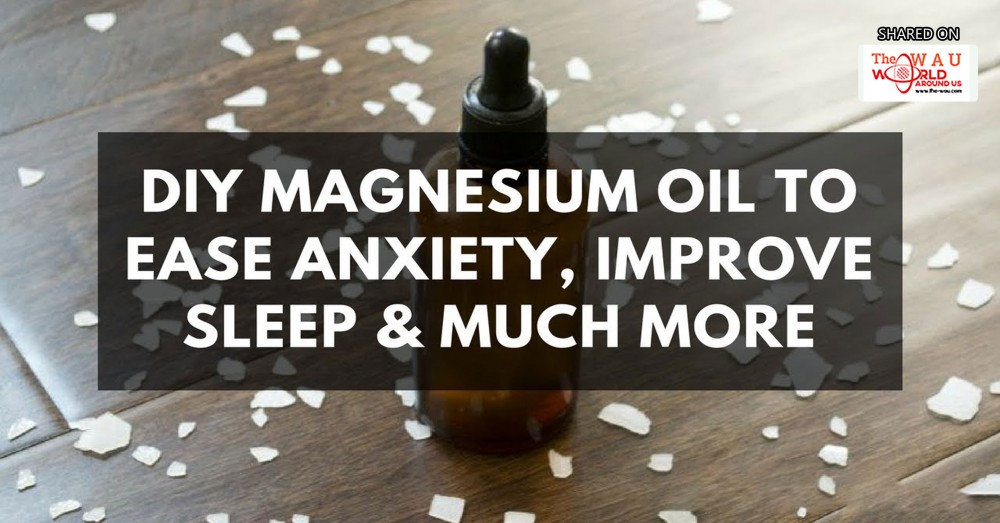Magnesium is an important element needed by our bodies, yet most people have no idea they suffer from a magnesium deficiency. Magnesium helps the body regulate calcium, potassium, and sodium. Here are some of the vital roles this mineral plays in our bodies:
- It’s a cofactor for more than 300 enzyme reactions in your body
- It helps relaxation of muscles and will help ease muscle cramps
- Helps stabilize blood sugar and insulin sensitivity
- Vital for cardiovascular health
- Helps to balance hormones for both men and women
- Increased stress causes the body to burn through magnesium, so it needs to be replenished
- Helps mood regulation
What is Magnesium Oil?
Technically, it’s not an oil. It just feels slippery like oil. It’s a solution of magnesium chloride flakes in water. You can buy it pre-made (this Ancient Minerals Magnesium Oil Spray is the best), but it’s much more cost effective to make our own. Yes, there are magnesium supplements you can take orally, but magnesium supplementation is better for you in an absorbable form. Your body will only take what it needs through the skin, whereas taking some supplements orally can cause an over-abundance in the body. And, again, this method is more economical than buying pill supplements.
10 Benefits of Topical Magnesium Oil
Widespread acknowledgment of the lack of magnesium in American diets has made it one of the most important supplements to take. This mineral is one of seven nutrients on the U.S. Department of Health’s list of nutrients of concern, published as a part of its Dietary Guidelines for Americans, and according to the World Health Organization, it’s been estimated that three-quarters of adults aren’t getting enough magnesium in their diet.
A study by scientists at the Centers for Disease Control, published in the Journal of Nutrition, explained, “Despite the role of magnesium in maintaining health, much of the U.S. population has historically not consumed adequate amounts of magnesium…Magnesium is an essential element that is crucial to hundreds of physiologic processes in humans. Not surprisingly, inadequate intake of magnesium has been linked to various adverse health outcomes, including the development of cardiovascular disease, hypertension, diabetes mellitus, and headaches. Furthermore, magnesium is important in bone growth and may play a role in athletic performance.”
So, why don’t we just eat more kale, walnuts, and other magnesium-rich foods?
It seems that no matter how much of these foods we can consume, this mineral isn’t best absorbed orally. When magnesium is taken orally, it’s affected by a number of elements in the gut, and it can also act as a laxative, which decreases the amount of time it can be absorbed in the body. In the past, we got quite a bit of magnesium through the foods we ate, especially those dark veggies, and certain types of nuts, but our soil worldwide – particularly in the U.S., has become dramatically depleted in magnesium. For example, spinach is said to contain just 13 percent of the magnesium that it did back in 1950, so even if you eat a ton of Popeye’s favorite food, you’re probably not getting enough.
Ancient people actually used magnesium for various topical and transdermal therapies, without the scientific knowledge behind it. They used it for mud packs, in steam and sweat lodges, mineral baths and herbal compresses – and today, we know why: this type of topical therapy can be incredibly healing to promote better health and wellness.
These are just some of the benefits of using magnesium oil topically.
...[ Continue to next page ]
Share This Post















